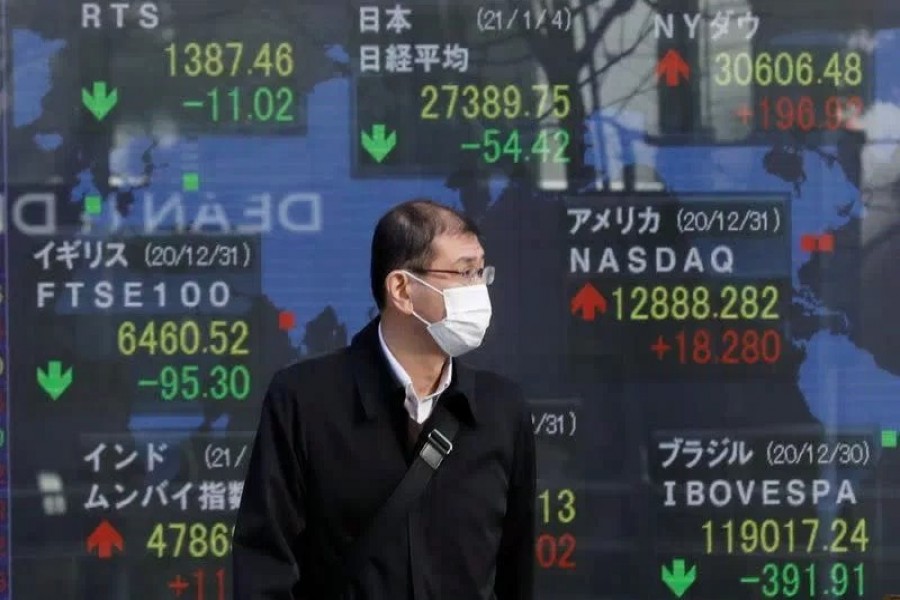Asian equities bounced between gains and losses on Thursday as a selloff in Chinese technology shares due to concerns they will be de-listed from US bourses and worries about a semiconductor shortage rattled some investors.
MSCI’s broadest index of Asia-Pacific shares outside Japan rose 0.1 per cent.
Hong Kong shares fell sharply at the open but then trimmed their losses to a 0.18 per cent decline. Alibaba Group Holding Ltd, Xiaomi Corp, and Tencent Holdings all traded lower. Shares in China rose 0.08 per cent.
Elsewhere, Japanese stocks rose 0.71 per cent and Australian shares rose 0.24 per cent as bargain hunters bought shares of consumer goods, real estate, and financial firms.
US stock futures rose 0.25 per cent.
The US securities regulator is rolling out measures that would kick foreign companies off US stock exchanges if they do not comply with US auditing standards and require them to disclose any government affiliations, which is widely expected to target Chinese companies.
In addition, concerns about extended economic lockdowns in Europe, disruptions to the distribution of coronavirus vaccinations and potential US tax hikes also weighed on investor sentiment.
“Rising interest rates, uncertainty of tax policy, concern over inflation all remain top of mind for investors. However, none of these themes speak to rising appetite for risk,” said Peter Kenny of Kenny’s Commentary LLC and Strategic Board Solutions LLC in Denver.
“We are seeing last year’s big gains underperform the broader market.”
On Wall Street, the Dow Jones Industrial Average fell 0.01 per cent, the Nasdaq Composite dropped 2.01 per cent, while the S&P 500 lost 0.55 per cent as optimistic comments by US Federal Reserve Chairman Jerome Powell and Treasury Secretary Janet Yellen failed to ease profit-taking in the tech sector.
MSCI’s gauge of stocks across the globe rose 0.07 per cent.
US crude fell 1.45 per cent to $60.29 per barrel, and Brent fell 1.21 per cent to $63.64 a barrel, giving back some of the previous day’s gains made after one of the world’s largest container ships ran aground in the Suez Canal, blocking a vital shipping lane.
Benchmark 10-year US Treasury yields rose to 1.6330 per cent in Asian trade, supported by positive data on the US manufacturing sector.
Investors have focused on the 10-year Treasury yield, pondering if there is room for long-term interest rates to run, said David Kelly, chief global strategist at JPMorgan Asset Management.
“We know that the economy is primed to begin to really accelerate in the second quarter,” Kelly said. “But we haven’t seen that acceleration yet so that’s what we’re waiting for.”
The dollar hit a fresh four-month high of $1.1804 per euro on Thursday as extended lockdowns and worries about the pace of vaccinations across Europe hobbled the common currency.
Even Germany’s reversal of a call for a strict lockdown over the Easter period was not able to help the euro.


